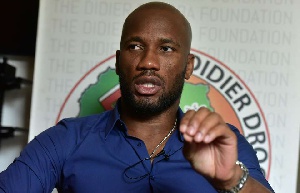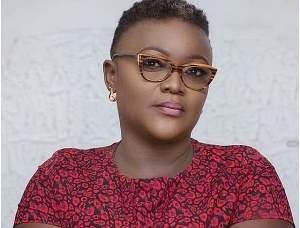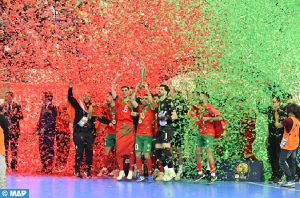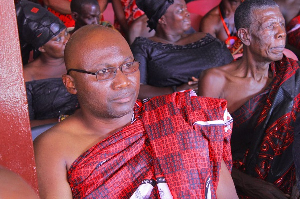Opinions of Friday, 10 December 2010
Columnist: Bokor, Michael J. K.
How should we punish these chiefs? Part II
Part II
By Dr. Michael J.K. Bokor
E-mail: mjbokor@yahoo.com
December 7, 2010
As our chiefs continue to flout the Constitution, they create misleading impressions. Once there is an injunction, there must be punishment for violators. Doubtless, the chiefs violate such a Constitutional provision and get away with it because of obvious lapses in the system.
We can trace the problem to our political arrangements, which are cumbersome in respect of the position and role of traditional rulers in this constitutional framework. The Constitution guarantees the institution of chieftaincy, together with its traditional councils as established by customary law and usage, meaning that traditional rulers can function without any interference from the powers-that-be for as long as they don’t flout the laws of the country. Doing active politics, especially one that threatens the government of the day, is an act that flouts the Constitution.
But wait a minute. If the Constitution has banned chiefs from participating in “active politics,” how come that they are part of the Local Government network? How can we have traditional rulers in the District/Municipal/Metropolitan Assemblies to participate in political activities but restrain them from doing so outside those Assemblies? Shouldn’t we ban them altogether from being part of the Assemblies if we want to exclude them completely from active politics? This paradox is difficult to understand. Maybe, the chiefs know that this paradox exists and are taking advantage of it to assert their influence.
Before the advent of the Western system of governance , our chiefs were regarded as the custodians of the political, economic, political, ideological, cultural, social, and spiritual ideals of their domains. They exercised enormous powers, which are gradually being chipped away from them by the District/Municipal/Metropolitan Assemblies. In some instances, some of the Chief Executives of the District/Municipal/Metropolitan Assemblies have butted heads with some chiefs and reduced them to virtual nonentities because they are now in direct control of affairs, exercising the powers formerly vested in the chiefs.
Unless otherwise determined, the chiefs’ powers are limited now, unlike those days when they could subject any member of the community to any form of persecution, including trial by ordeal, and impose heavy penalties. The court system, particularly, has taken away much from the authority of the chiefs. But like dying donkeys that kick the hardest, the chiefs have refused to yield grounds and make their voices heard on partisan political issues, as Togbega Gabusu has just done.
Our politicians are also part of the problem. Under normal circumstances, politicians visiting traditional areas are bound to pay courtesy calls on the chiefs/queenmothers in search of their nod to get support from the electorate in their jurisdiction. During the interactions, the politicians make political statements and the chiefs also give their opinions to indicate that they are politically active. Once their appetite for active politics is whetted, they don’t look back. And who can stop them?
Some chiefs think it better to abdicate and participate actively in partisan politics (the former Vice President, Kow Nkensen Arkaah, for instance). They must know the implications of such a gamble. Others don’t abdicate until forced by circumstances to do so. Alhaji M.N.D. Jawula, Lepowura, who was a Chief Director in the Civil Service, for instance, openly campaigned on the platform of the NPP until forced by circumstances to choose between the devil and the deep blue sea. Then, he regularised matters by choosing to abdicate his throne only to lose out when the NPP was defeated at the elections. I don’t know what he is now—a full-fledged politician or a prodigal chief.
There are other chiefs who have dabbled in partisan politics in various guises. Under Kufuor, we all saw what the Asantehene contributed to partisan politics, even to the extent of invoking the Oyoko blood line to virtually anoint Akufo-Addo as Kufuor’s successor. His wish was, however, not a horse for beggars to ride.
Chiefs in other traditional areas such as in the Volta Region, also mounted political platforms to tout their support for the NDC. Others elsewhere identified themselves with specific political parties, which is annoying insofar as their conduct runs counter to the Constitution. Some incidents in some of those areas have deep partisan political underpinnings.
Our politicians know that they can’t do without the support of the chiefs; hence, their subtle (and sometimes, brazen) use of these chiefs to advantage. This is one of the main problems confronting us. We can’t divorce partisan politics from the traditional rulers nor can they restrain themselves from participating in it. More importantly, when they flout the Constitution, we can’t punish them.
When they do so, they step on toes and create serious problems. The numerous chieftaincy disputes can be traced to the double-dealing by politicians who support one faction in the dispute and put a wedge between communities. Eventually, the entire chieftaincy institution has been politicized, which pits some chiefs against their opponents (including politicians) and threatens social cohesion. Take, for instance, the recent disturbances in the Ga State, which gave clear indications that Nii Tackie Tawiah III (Ga Mantse, as recognized by one faction) is in the good books of the NPP while being spurned by the NDC.
The ongoing agitation by the chiefs of the Western Region for 10% of the petroleum revenue has inklings of active politics in it, especially, if we consider what will happen should the government fail to meet their demand. Apparently, the impasse was engendered by the politicization of issues, stemming from the promise made by the current Vice President long before the NDC won the 2008 elections. We can see from what is unfolding that unless the tide turns in their favour, the chiefs will be so embittered as to “advise themselves” at election time. Certainly, they are not alone. Their sympathetic subjects will follow suit and blame the political party in government for failing to satisfy them. With one accord to punish that political party, they will vote against it. If this line of action is not partisan politics (even if in disguise), then, what else is?
As we continue to look for ways to strengthen our democracy, it must go without saying that anything that runs counter to the tenets of our Constitution must be dealt with decisively. Once it is clear that chiefs shouldn’t involve themselves in “active politics” (as the Constitution puts it), any one among them who does so must not be spared. But how do we punish such an erring chief in the absence of constitutional sanctions? It seems that we are failing to play our cards properly and shouldn’t be surprised if overtaken by events.












